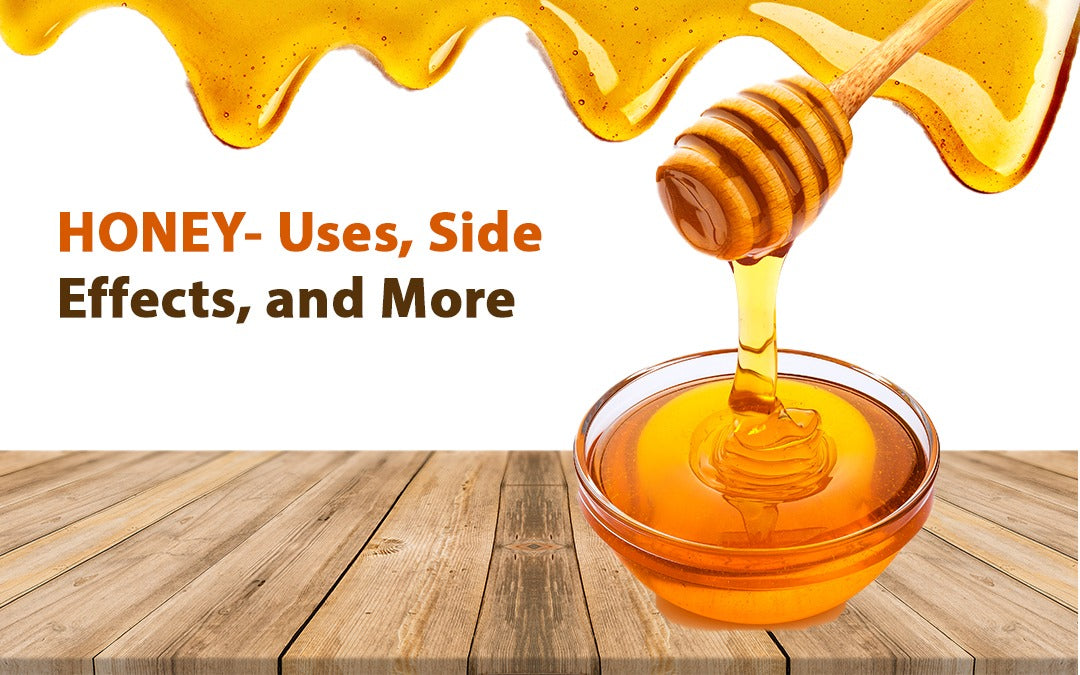Honey is a sweet, viscous food substance produced by bees. Bees make honey from the sugary secretions of plants or from secretions of other insects, by regurgitation, enzymatic activity, and water evaporation. Honey is a valuable food source for both humans and bees, and has a variety of uses in traditional medicine.
In addition, It can be used as an anti-inflammatory, antioxidant, and antibacterial agent. People commonly use honey orally to treat coughs and topically to treat burns and promote wound healing.
How much honey a day is good for you?
The recommended amount of sugar intake per day according to the American Heart Association is nine teaspoons (36 grams) for men, six teaspoons (24 grams) for women and children. A teaspoon of honey contains almost six grams of sugars, which is almost close to the recommended amount for women and children.
Here are 5 things that happen when you eat too much honey
- It can increase your blood sugar level
- Honey can lower blood pressure
- It can lead to stomach issues
- It can lead to weight gain
- Honey can also pave the way for dental problems
Honey's health benefits
Did you know that honey has many potential health benefits? It contains antioxidants, minerals, and enzymes that make it a natural powerhouse when it comes to promoting good health. Additionally, there is evidence to support honey as a cough remedy. The World Health Organisation (WHO) and the American Academy of Paediatrics both endorse honey for its soothing properties. So next time you're feeling under the weather, reach for some honey!
Uses & Effectiveness
Possibly Effective for
Honey has been used as a natural remedy for burns, coughs, and foot sores for centuries. Some studies have shown that honey may be effective in treating these conditions, while other studies have not been able to confirm these results. However, honey is generally considered safe to use and may be worth trying if you are looking for a natural remedy for any of these conditions.
Possibly Ineffective for
Honey has long been touted as a natural remedy for a variety of ailments, but recent studies have shown that it may not be effective for everything it's claimed to help. For example, applying honey to the face has been shown to be ineffective in treating acne. Additionally, taking honey by mouth does not seem to reduce lipid levels in people with high cholesterol, and using honey in a nasal spray doesn't improve symptoms in people who have frequent sinus infections.
Side Effects
When taken orally- honey is generally safe for most adults. However, honey produced from the nectar of rhododendrons may be unsafe and should be avoided. This type of honey can contain toxins that may cause heart problems, low blood pressure, and chest pain.
When applied into the eye- there are some eye drops containing manuka honey that are considered possibly safe (Optimel Manuka Plus Eye Drops; Melcare, Biomedical Pty Ltd). These eye drops are typically applied 2-3 times daily for up to 4 weeks.
Special Precautions and Warnings
There are some special precautions and warnings you should be aware of when taking or using honey, especially if it is produced from the nectar of rhododendrons. This type of honey contains a toxin that can potentially cause heart problems, low blood pressure, and chest pain. If you are considering using honey in your eyes, make sure to use only specific eye drops that contain manuka honey and always follow the instructions on the label.
Special Precautions and Warnings for Using Honey
When taken by mouth, honey is likely safe for most adults. However, honey that is produced from the nectar of rhododendrons is likely unsafe and should be avoided. This type of honey contains a toxin that may cause heart problems, low blood pressure, and chest pain.
When applied into the eye, it is possibly safe to use specific eye drops containing manuka honey (Optimel Manuka Plus Eye Drops; Melcare, Biomedical Pty Ltd). These eye drops are usually applied into the eyes 2-3 times daily for up to 4 weeks.
Honey is a great way to sweeten food for children who are at least one year old. It's important not to give honey to children under one year old because they could get botulism poisoning. For older children and adults, honey is a safe and delicious way to add sweetness to food.
If you have type 2 diabetes, you should use honey in moderation because it contains sugar. Large amounts of honey could raise your blood sugar levels.
If you're allergic to pollen, you should avoid honey because it could make your symptoms worse.

